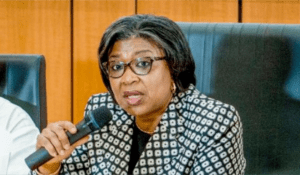UBA pledges $6bn to support SMEs in Expert expresses confidence in Tinubu’s 2024 budget proposaltrade deal
A Professor of Capital Market at Nasarawa State University, Keffi, Uche Uwaleke, has expressed optimism about the proposed 2024 budget presented by President Bola Tinubu.
Uwaleke, who is also the President of the Association of Capital Market Academics of Nigeria, made this statement during an interview with journalists in Abuja on Sunday.
While acknowledging the promising nature of the budget, Uwaleke highlighted the challenges posed by the distortionary impact of the Foreign Exchange (FX) regime.
He emphasised that addressing this issue is crucial for the successful implementation of the budget.President Bola Tinubu presented the 2024 Appropriation Bill, titled the “Budget of Renewed Hope,” to a joint session of the National Assembly on Wednesday.
The proposed budget amounts to N27.5 trillion. In Uwaleke’s view, the 2024 budget proposals offer significant potential for the economy if effectively executed.
“A major snag, however, stems from the likely distortionary impact of the new fx regime.
“A Naira float in the face of weak supply and strong demand with its attendant FX market volatility introduces uncertainty in budget implementation.
“This is why I consider the N750 to the dollar rate used for the 2024 budget as a tall order.
“It is most likely the exchange rate will be the major cause of wide variances in the 2024 budget on account of Nigerian Autonomous Foreign Exchange Market (NAFEM) operations,” he said.
Uwaleke said that a volatile and high exchange rate would increase the cost of servicing external debt and further widen the budget deficit.
“This is particularly so in respect of the dollar-denominated component of the budget, much of which can be found in the over three trillion Naira proposed defence spending as well as in recurrent debt expenditure.
“In my view, a well implemented and corrupt-free dual, not multiple, exchange rate regime helps to bring certainty in government procurements and short term planning in general,” he said.
He said that one tier of the dual rates should be official, including for debt service, and the other tier for other transactions.
According to Uwaleke, a related issue has to do with the mode of financing the over nine trillion Naira deficit and its likely impact on cost of capital for firms and the stock market.
“In previous budgets, the amount voted for new borrowings were split fairly equally between domestic and foreign sources.
“This time around domestic borrowing is taking up a huge chunk at about 78 per cent, N6.1 trillion out of N7.8 trillion, provisioned for new borrowings
“This can have the effect of crowding out the private sector, hiking interest rates, increasing cost of funds, and depressing the equities market as investors migrate to fixed income securities.
“The outcome will be a further weakening of the productive sector,” he said.
He advised the Federal Government to explore more opportunities for concessional project-tied loans from multilateral and bilateral sources.
He said that this would help to boost fx reserves and stabilise the exchange rate.
“With respect to borrowing domestically, it’s important that emphasis should be placed on the use of the right instruments such as infrastructure bonds as opposed to Federal Government of Nigeria (FGN) bonds that are inflationary prone,” he said.




